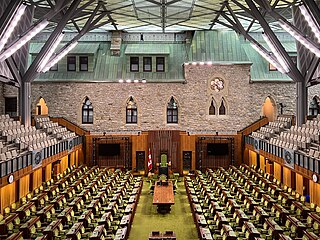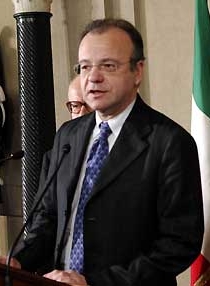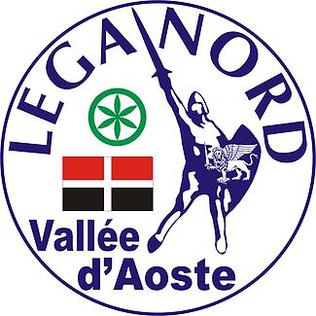Related Research Articles

The House of Commons of Canada is the lower house of the Parliament of Canada. Together with the Crown and the Senate of Canada, they comprise the bicameral legislature of Canada.

The National Assembly is the lower house of the bicameral French Parliament under the Fifth Republic, the upper house being the Senate. The National Assembly's legislators are known as députés, meaning "delegate" or "envoy" in English; etymologically, it is a cognate of the English word deputy, the standard term for legislators in many parliamentary systems.

The Italian Parliament is the national parliament of the Italian Republic. It is the representative body of Italian citizens and is the successor to the Parliament of the Kingdom of Sardinia (1848–1861), the Parliament of the Kingdom of Italy (1861–1943), the transitional National Council (1945–1946) and the Constituent Assembly (1946–1948). It is a bicameral legislature with 600 elected members and a small number of unelected members. The Italian Parliament is composed of the Chamber of Deputies, as well as the Senate of the Republic.

National-level elections in Italy are called periodically to form a parliament consisting of two houses: the Chamber of Deputies with 400 members; and the Senate of the Republic with 200 elected members, plus a few appointed senators for life. Italy is a parliamentary republic: the President of the Republic is elected for a seven-year term by the two houses of Parliament in joint session, together with special electors appointed by the Regional Councils.

Gianfranco Rotondi is an Italian politician. A member of the Italian Parliament since 1994, he was a member of the Chamber of Deputies from 1994 to 1996, from 2001 to 2006, and since 2008, as well as a member of the Senate of the Republic from 2006 to 2008. He was also a Minister without Portfolio for the Implementation of the Government Program in the fourth Berlusconi government from 2008 to 2011.

The 1994 Italian general election was held on 27 and 28 March 1994 to elect members of the Chamber of Deputies and the Senate of the Republic for the 12th legislature. Silvio Berlusconi's centre-right coalition won a large majority in the Chamber of Deputies but just missed winning a majority in the Senate.

The third Berlusconi government was the cabinet of the government of Italy from 23 April 2005 to 17 May 2006. It was the 58th cabinet of the Italian Republic, and the second cabinet of the XIV Legislature.

Lega Vallée d'Aoste, whose complete name is Lega Vallée d'Aoste per Salvini Premier, is a regionalist political party active in Aosta Valley. The party was a "national" section of Lega Nord (LN) from 1991 to 2000 and has been the regional section of Lega per Salvini Premier (LSP) in Aosta Valley since 2020.

The Associative Movement of Italians Abroad is an Italian political party representing Italians abroad. Based in Argentina and active mainly in South America, the MAIE is a centrist party.

Ignazio Benito Maria La Russa is an Italian politician who is serving as president of the Senate of the Republic since 13 October 2022. He is the first politician with a neo-fascist background to hold the position of President of the Senate, the second highest-ranking office of the Italian Republic.

The 2013 Italian general election was held on 24 and 25 February 2013 to determine the 630 members of the Chamber of Deputies and the 315 elective members of the Senate of the Republic for the 17th Italian Parliament. The centre-left alliance Italy Common Good, led by the Democratic Party (PD), obtained a clear majority of seats in the Chamber of Deputies thanks to a majority bonus that effectively trebled the number of seats assigned to the winning force and narrowly defeated the centre-right alliance of former prime minister Silvio Berlusconi in the popular vote. Close behind, the new anti-establishment Five Star Movement of comedian Beppe Grillo became the third force, well ahead of the centrist coalition of outgoing Prime Minister Mario Monti. In the Senate, no political group or party won an outright majority, resulting in a hung parliament.

The 2018 Italian general election was held on 4 March 2018 after the Italian Parliament was dissolved by President Sergio Mattarella on 28 December 2017. Voters were electing the 630 members of the Chamber of Deputies and the 315 elective members of the Senate of the Republic for the 18th legislature of the Italian Republic since 1948. The election took place concurrently with the Lombard and Lazio regional elections. No party or coalition gained an absolute majority in the parliament, even though the centre-right coalition won a plurality of seats as a coalition, and the Five Star Movement (M5S) won a plurality of seats as an individual party.

Democratic Centre is a centrist, Christian leftist and social-liberal political party in Italy. Most of its members, including its leader Bruno Tabacci, are former Christian Democrats. Since its beginnings, the CD has been also part of the centre-left coalition, centred around the Democratic Party (PD).

The Italian electoral law of 2015, also known as Italicum, was an Italian electoral law passed in 2015. The law, which came into force on 1 July 2016, regulated only the election of the Chamber of Deputies, replacing the Italian electoral law of 2005, which had been ruled partly unconstitutional by the Constitutional Court of Italy in December 2013. It provided for a two-round system based on party-list proportional representation, including a majority bonus and a 3% election threshold. Candidates would have run in 100 multi-member constituencies using open lists. The largest party which won over 40% of the vote would automatically win a majority of seats; if no party won 40% of seats, a second round of voting would be held between the two largest parties, with the winner of the second round winning a majority of seats. The name "Italicum" was coined in 2014 by Democratic Party secretary and later Prime Minister of Italy, Matteo Renzi, who was one of the legislation's main proponent.

The 2022 Italian general election was a snap election held in Italy on 25 September 2022. After the fall of the Draghi government, which led to a parliamentary impasse, President Sergio Mattarella dissolved Parliament on 21 July, and called for new elections. Regional elections in Sicily were held on the same day. The results of the general election showed the centre-right coalition led by Giorgia Meloni's Brothers of Italy, a right-wing political party with neo-fascist roots, winning an absolute majority of seats in the Italian Parliament. Meloni was appointed Prime Minister of Italy on 22 October, becoming the first woman to hold the office.

The Italian electoral law of 2017, colloquially known by the nickname Rosatellum after Ettore Rosato, the Democratic Party (PD) leader in the Chamber of Deputies who first proposed the new law, is a parallel voting system, which acts as a mixed electoral system, with 37% of seats allocated using a first-past-the-post electoral system and 63% using a proportional method, with one round of voting. The Chamber and Senate of the Republic did not differ in the way they allocated the proportional seats, both using the largest remainder method of allocating seats.

The 2019 Italian by-elections were the elections called to fill seats of the Parliament that had become vacant after the 2018 general elections.

The 2020 Italian by-elections were called to fill seats in the Parliament that became vacant after the 2018 general elections. In 2020, by-elections were held for the Chamber of Deputies the Senate of the Republic.
The 2021 Italian by-elections were held to replace members of the Italian Parliament. The elections were held on 3–4 October 2021.

The Pensioners' National Party was a political party active in Italy.
References
- ↑ di (2018-02-25). "Tornano le elezioni suppletive (qualcuno se ne è accorto?)". laCostituzione.info (in Italian). Retrieved 2020-05-21.